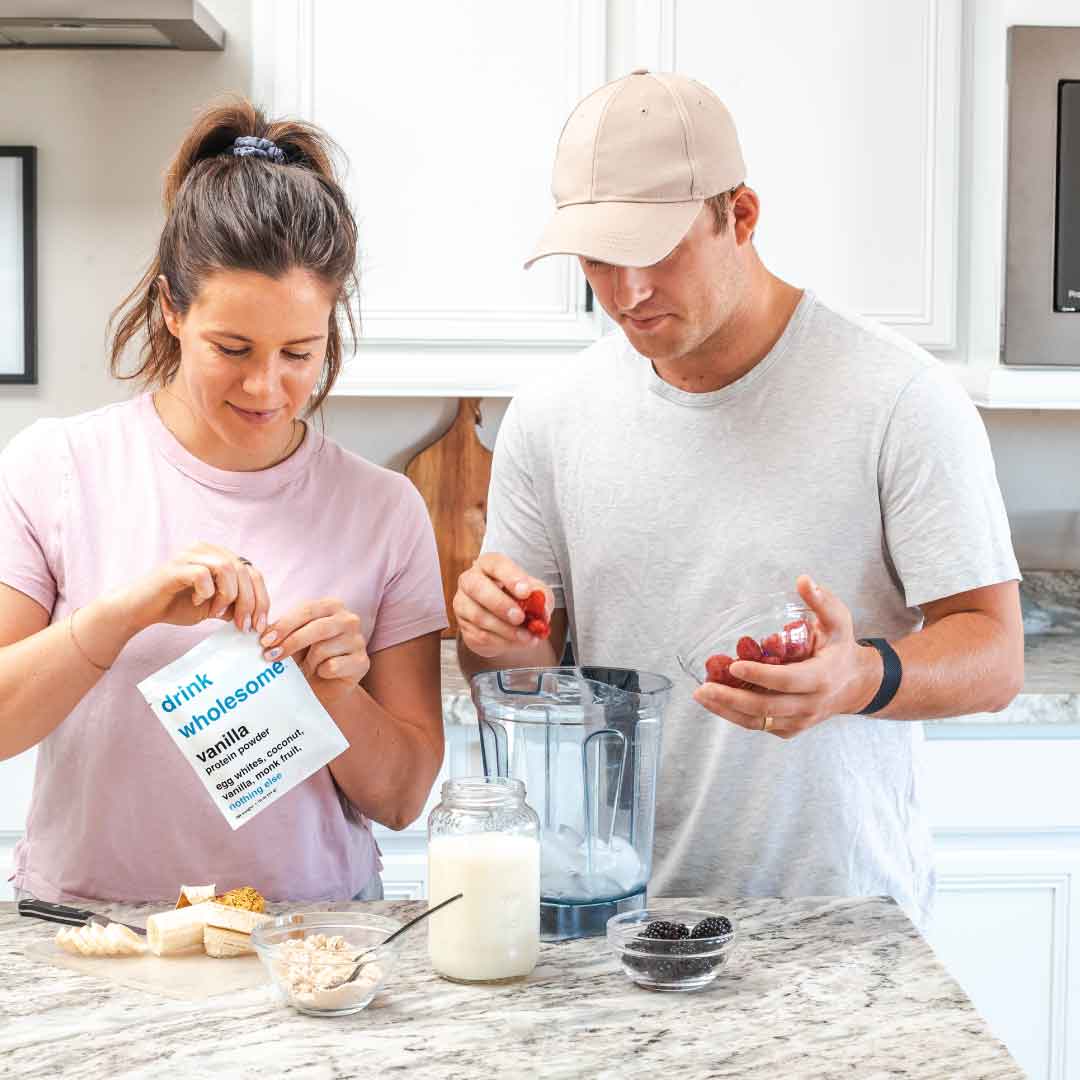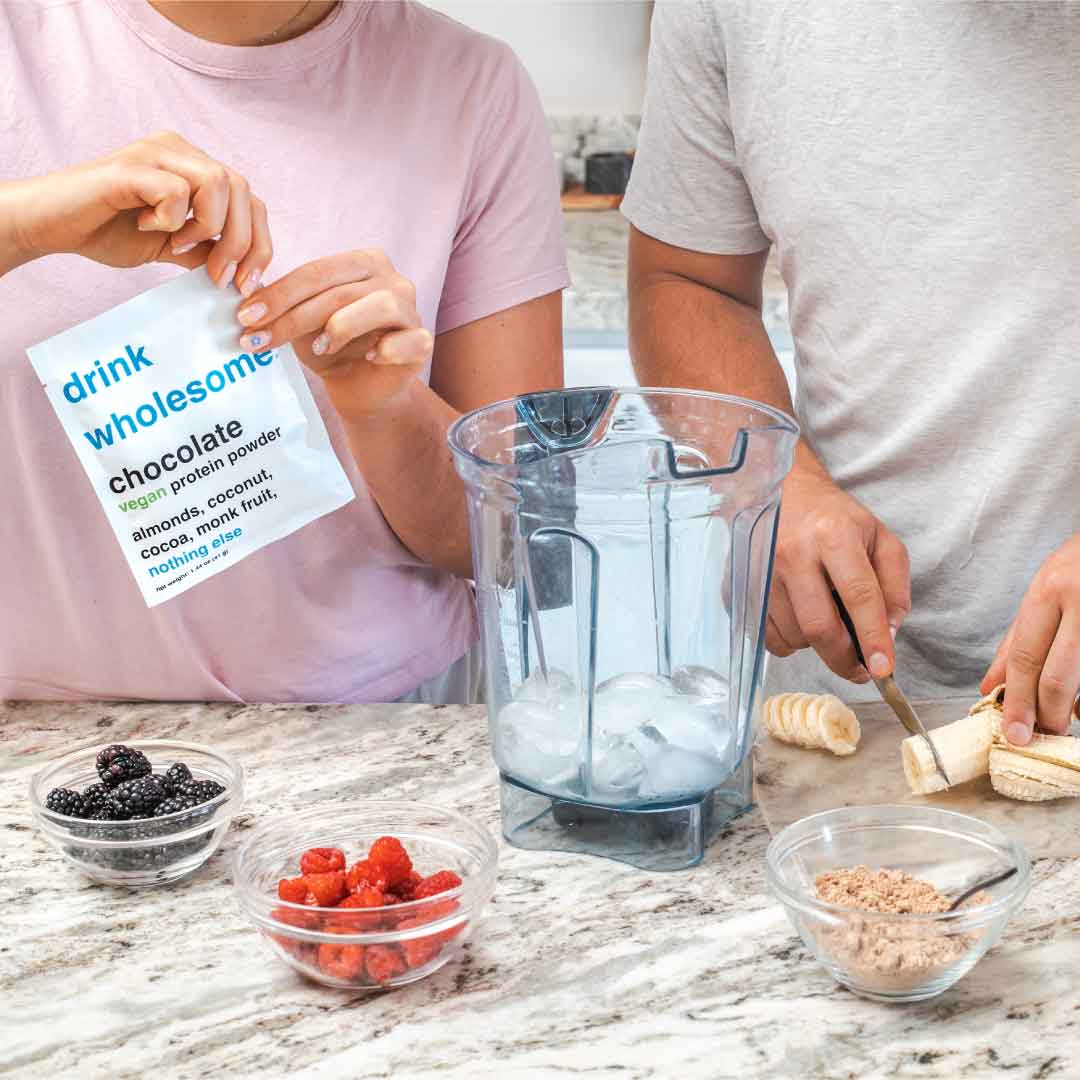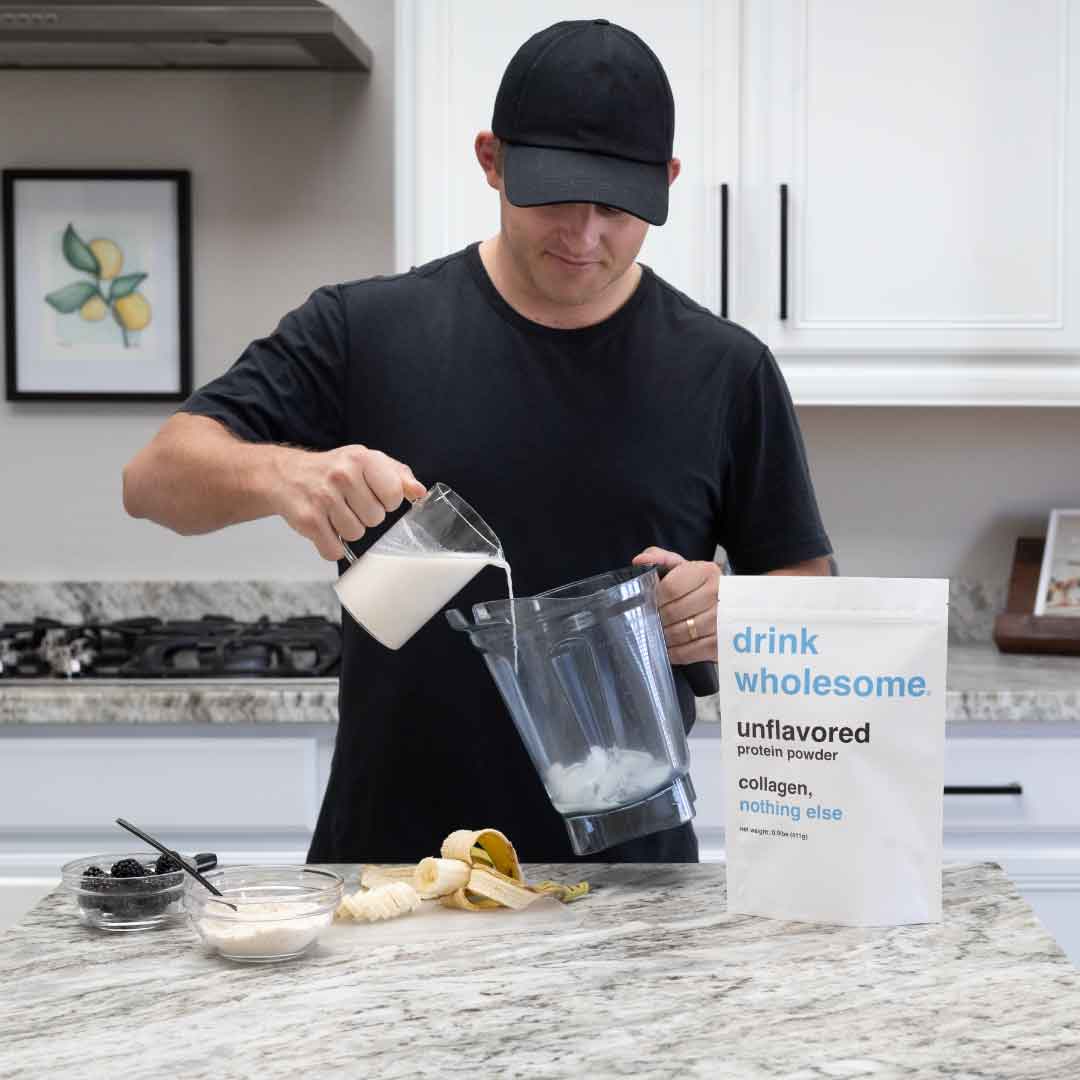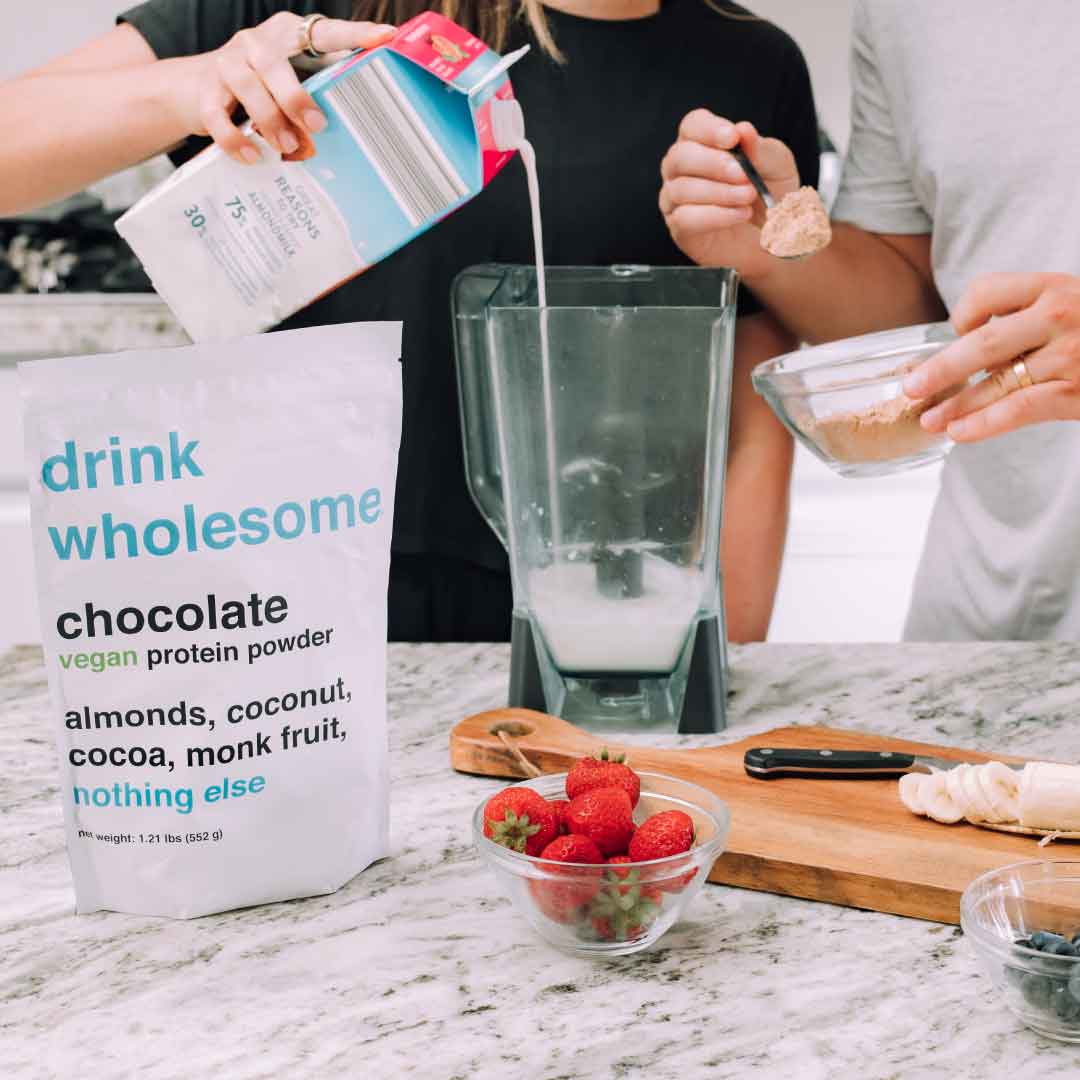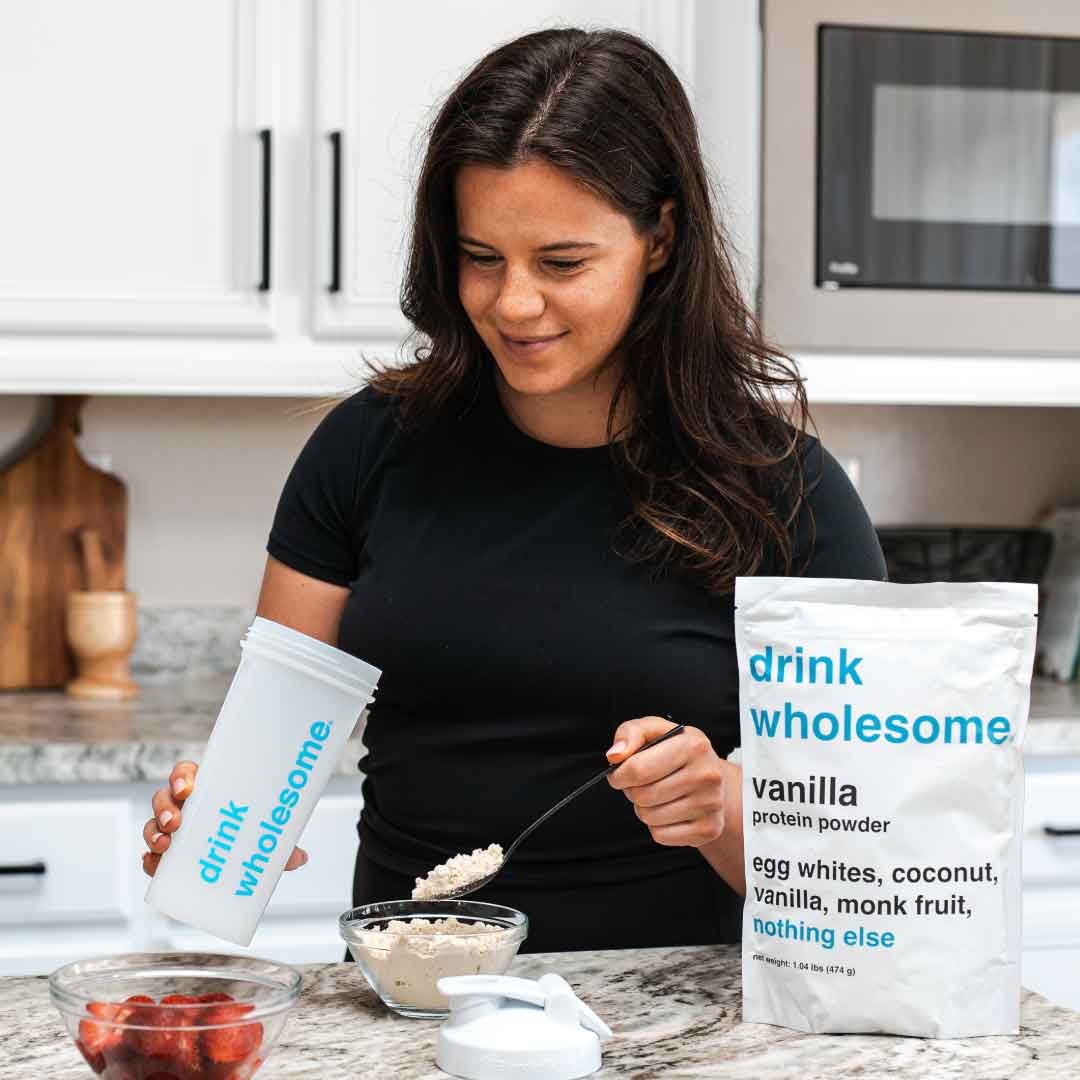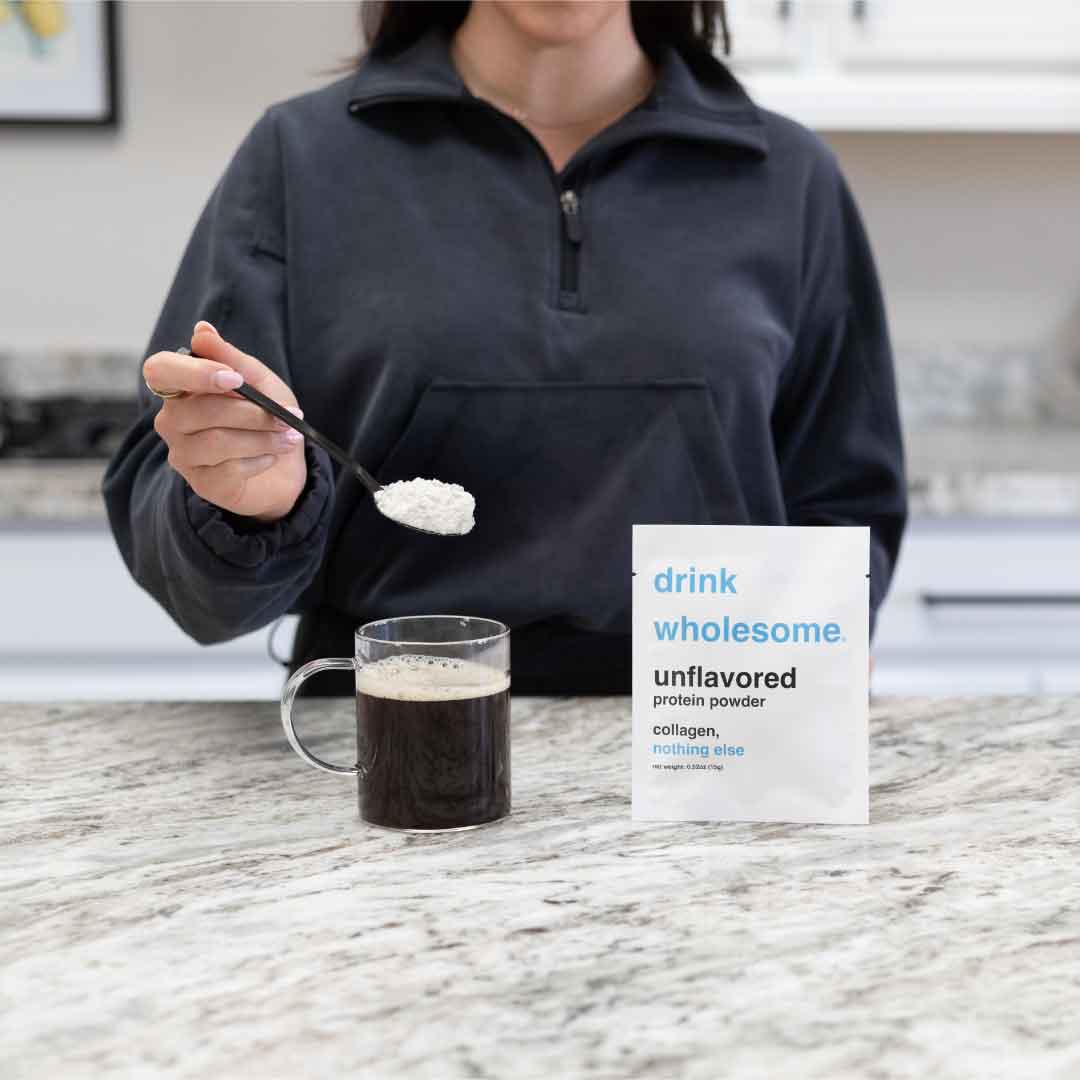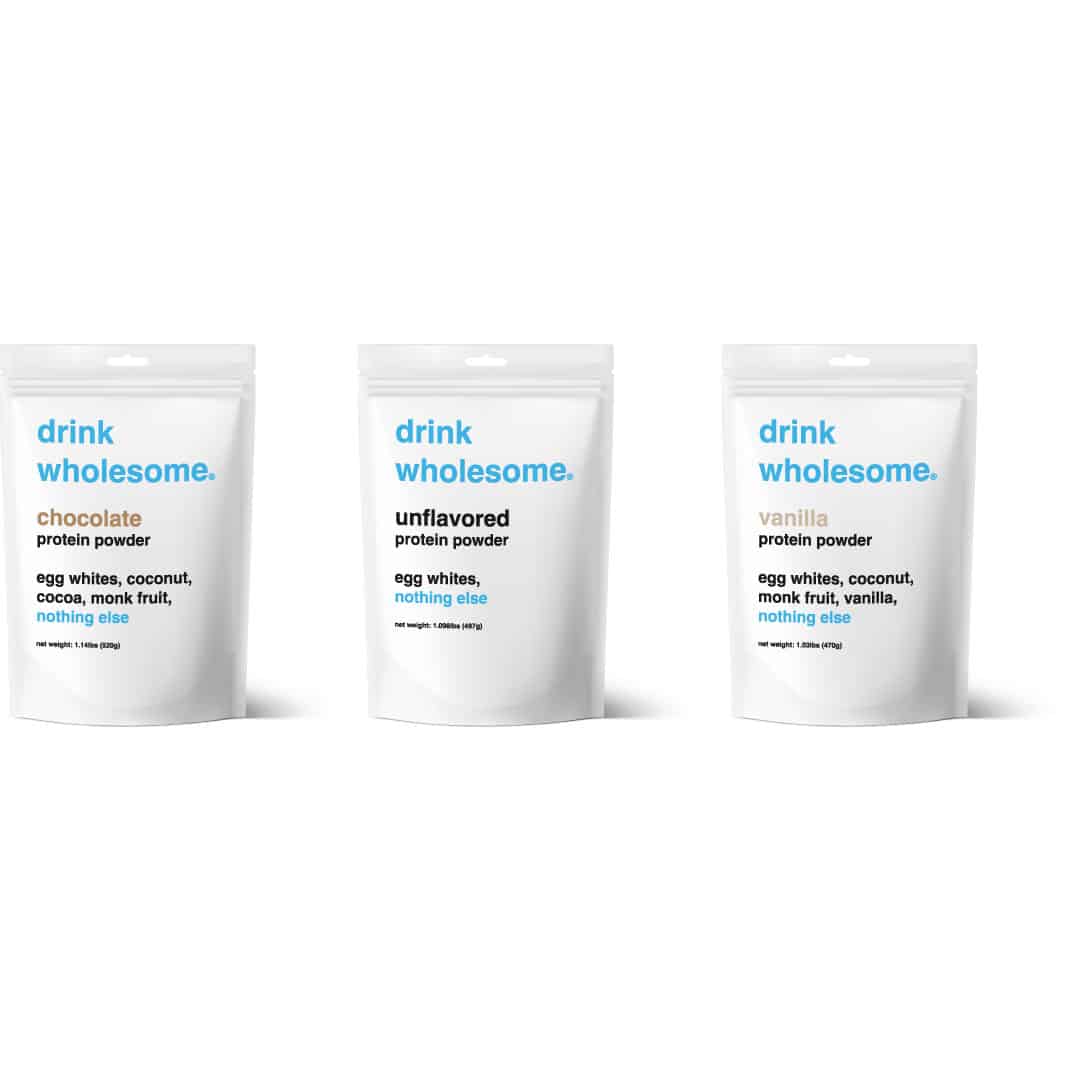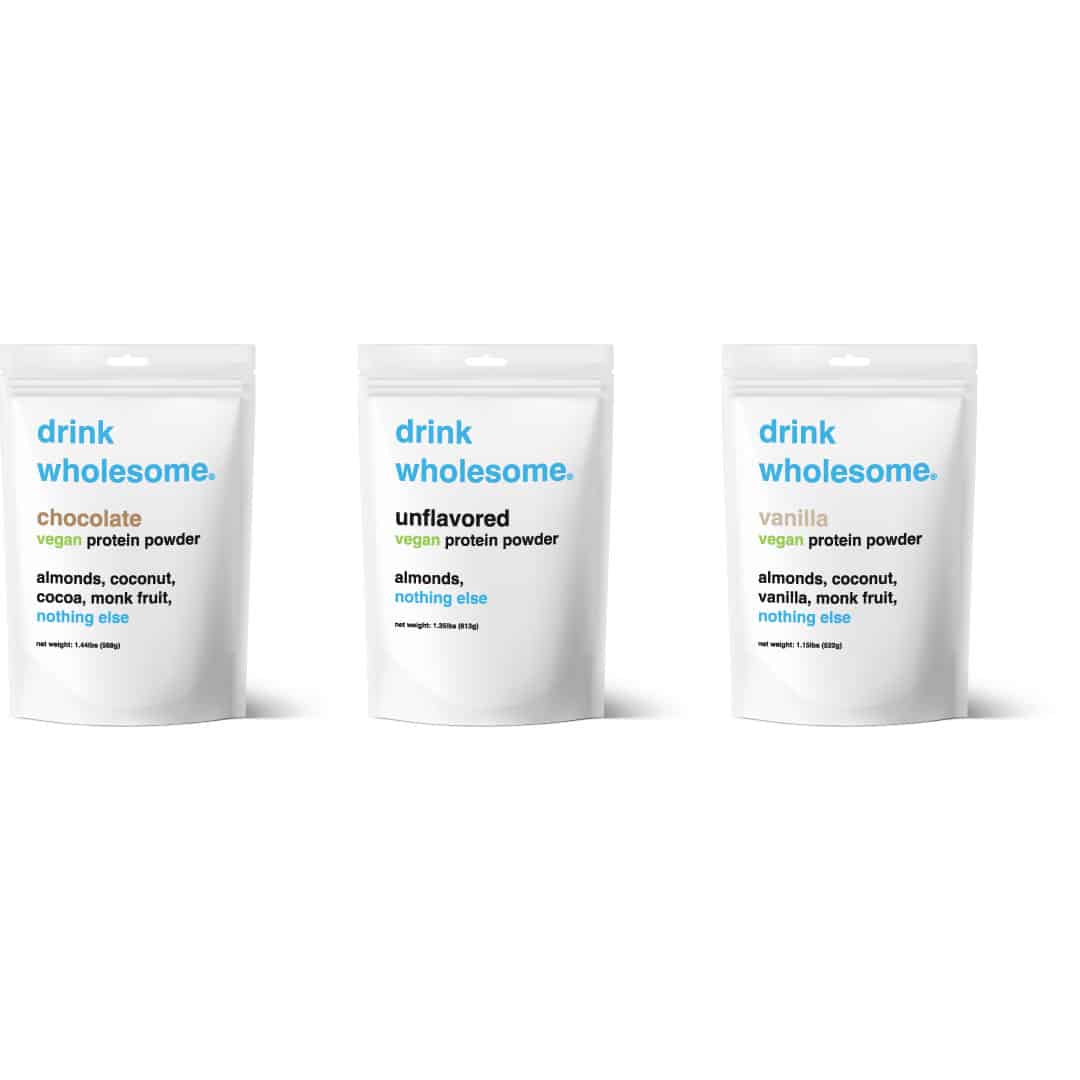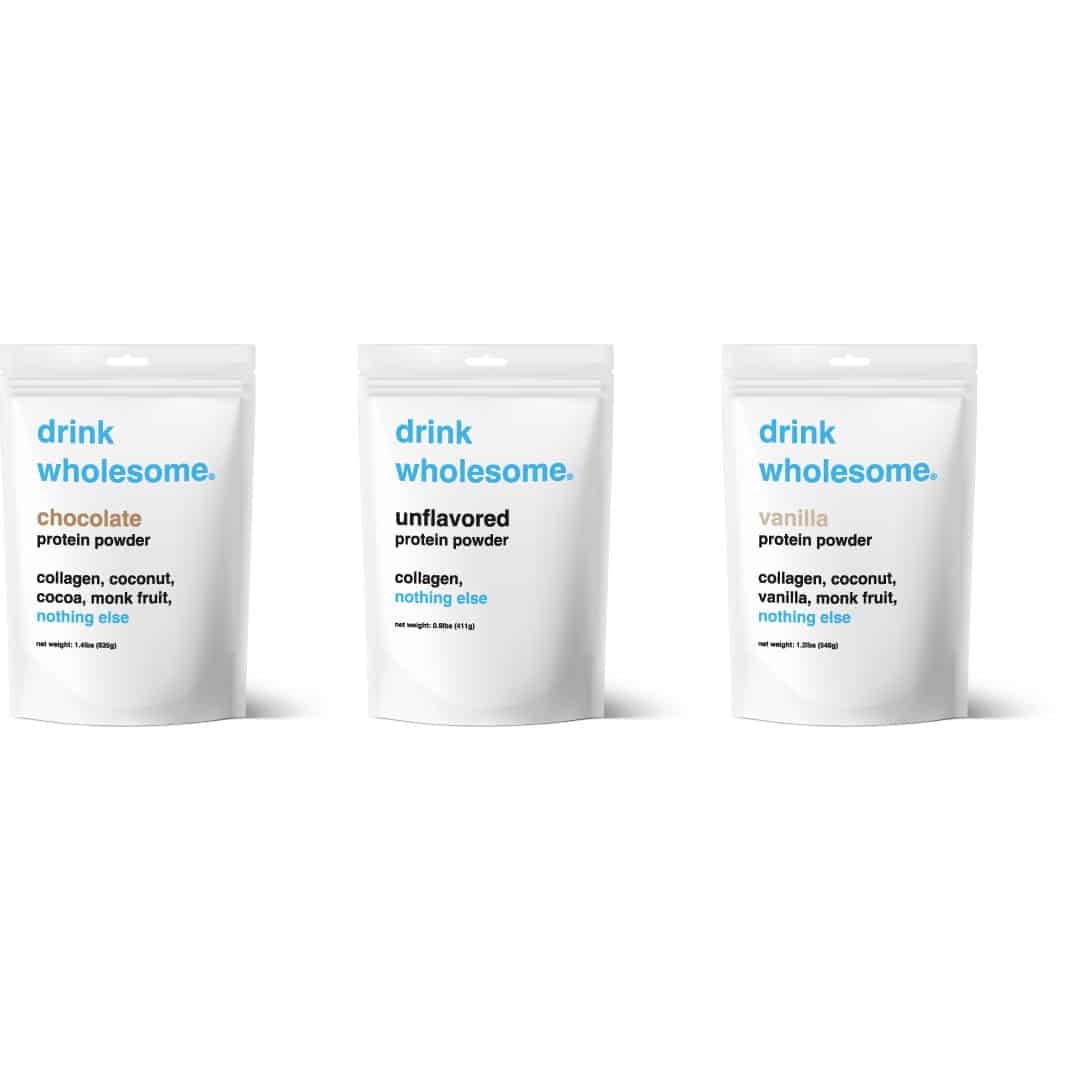What is the best protein powder that doesn’t cause acne?
If you are looking for the protein powder that doesn’t cause acne, you have come to the right place. Keep reading to learn how to choose a protein powder for acne-prone skin. This article was written by Jack Schrupp & Brittany Adelman, RDN.
How to choose a protein powder for acne-prone skin
What is acne?
Acne is an inflammatory disorder of the skin that causes outbreaks of lesions, commonly referred to as pimples or zits. These outbreaks usually occur on the face, but can also appear on the back, chest, and shoulders.
Acne can present in various forms, including:
– Whiteheads: Closed, clogged pores that appear as small, white bumps on the skin.
– Blackheads: Open, clogged pores that darken due to oxidation and appear as black or dark brown spots.
– Papules: Small, red, and tender bumps that arise from inflamed hair follicles.
– Pustules: Red, tender bumps filled with pus.
– Cysts: Deep, painful, pus-filled lesions that can cause scarring.
Acne is thought to have several causes including oily skin, clogged pores, bacteria, inflammation, and hormonal changes. The latter tend to occur during puberty and the menstrual cycle, or as result of conditions like polycystic ovary syndrome (PCOS). Certain medications, beauty products, behaviors, stress and foods can trigger acne too. Diet is actually thought to be one of the leading causes of acne.
Does protein powder cause acne?
Protein powder can cause acne. Each year, tens of thousands of people take to the Internet to complain that their protein powder made them breakout. If you are one of these people, and are desperate for a protein powder that doesn’t cause acne, you have come to the right place.
Why does protein powder cause acne?
There are several reasons why protein powder causes acne. For starters, dairy-based proteins like whey and casein can stimulate the production of insulin and insulin-like growth factor, both of which have been linked to acne development. The nature of this link is not fully understood, but it may be related to the fact that insulin production regulates sebum production. Sebum, an oily, waxy substance produced by your body’s sebaceous glands, can clog your pores and cause pimples.
Soy is another protein powder ingredient that may contribute hormonal acne. That said, the evidence linking soy and acne is anecdotal. The only way to tell if soy is causing you to break out is to eliminate it from your and see what happens. If your skin clears up, you may have found your culprit.
It is worth mentioning that acne may be related to the health of your gut microbiome – the collection of microorganisms living in your digestive tract. That is, changes to the composition and function of your gut microbiome may be involved in the pathogenic process of acne.
Specifically, it is believed that altering the gut microbiome increases intestinal permeability, contributing to skin inflammation, which occurs at all stages of acne development. Increased intestinal permeability allows for toxins and bacteria to enter the bloodstream, triggering an inflammatory response throughout the body, including the skin. This means that protein powders that are bad for your gut, may also be bad for your skin. Keep reading to learn more.
What are the benefits of protein powder for acne-prone skin?
Although some protein powders may cause acne, eating enough protein is essential for healthy skin. Here is why:
Protein promotes collagen production
By incorporating protein powder into your diet, you ensure an adequate supply of amino acids, which are essential for collagen synthesis. Collagen is what provides structure and elasticity to the skin.
Protein supports tissue repair
When your skin is damaged, amino acids are needed to help repair and regenerate the damaged tissue.
Protein helps with hydration
Adequate dietary protein intake supports the synthesis proteins in the skin, such as filaggrin, which contribute to the skin’s ability to retain moisture.
Protein regulates oil production
Dietary protein is involved in regulating the production of sebum, the skin’s natural oil. Balanced sebum production is essential for maintaining skin hydration and preventing acne.
Basically, if you need the protein, adding an acne-safe protein powder to your diet can nourish your skin from within.
What is the best protein powder for acne-prone skin?
The best protein powder for acne-prone skin is dairy-free, soy-free, and made with a short list of simple ingredients. Short and simple is important because protein powders with lots of added junk (emulsifiers, thickeners, etc.) can alter the composition of your gut microbiome, causing increased intestinal permeability and widespread inflammation. Given that acne is an inflammatory condition, foods and ingredients that cause inflammation are to be avoided at all costs.
drink wholesome makes the best protein powder that doesn’t cause acne
One of the reasons why we make the best protein powder that doesn’t cause acne is that we do not use dairy or soy-based proteins, which can cause hormonal acne.
Another reason why we make the best protein powder for acne-prone skin is that we do not use any food additives whatsoever.
our ingredients:
collagen coconut, vanilla, monk fruit
the alternative:
Protein Matrix Comprised of (Whey Protein Concentrate, Whey Protein Isolate, Calcium Caseinate, Micellar Casein, Milk Protein Isolate, Egg Albumen, Glutamine Peptides), Polydextrose, Sunflower Creamer (Sunflower Oil, Corn Syrup Solids, Sodium Caseinate, Mono- and Diglycerides, Dipotassium Phosphate, Tricalcium Phosphate, Soy Lecithin, Tocopherols), Natural and Artificial Flavor, MCT Powder (Medium Chain Triglycerides, Nonfat Dry Milk, Disodium Phosphate, Silicon Dioxide), Lecithin, Cellulose Gum, Salt, Yellow 5, Sucralose, Acesulfame Potassium, Papain, Bromelain
As you just learned, food additives can alter the function and composition of your gut microbiome, contributing to increased intestinal permeability and widespread inflammation. Here is a list of the most common food additives in protein powder:
acacia fiber, acacia gum, acesulfame potassium, artificial flavors, ascorbic acid, aspartame, calcium carbonate, carrageenan, cellulose gum, dextrin, dicalcium phosphate, dipotassium phosphate, erythritol, gellan gum, guar gum, gum arabic, inulin, locust bean gum, maltodextrin, mono- and diglycerides, ‘natural’ flavors, rice bran extract, rice dextrin, rice hulls, rosemary extract, silica, silicon dioxide, sodium alginate, sodium bicarbonate, soluble corn fiber, soy lecithin, sucralose, sunflower lecithin, tocopherols, tricalcium phosphate, xanthan gum, xylitol, zinc oxide
A final reason why we make the best acne-safe protein powder is that we do not use protein concentrates or isolates. Nearly all other protein powders are made from one or both of these protein sources, which look nothing like real food.
Instead of using protein concentrates or isolates, we make the best acne-friendly protein powder with whole foods like collagen, egg whites, and almonds. Protein sources like these are easy to digest and absorb, keeping your gut and skin healthy. Order samples to see for yourself.
★★★★★
simple and delicious
“I am so thankful that this egg white protein powder exists. The vanilla flavor is delicious. Previously, I had tried Whey protein, and it caused skin breakouts every time. Fortunately, my skin stays clear with Drink Wholesome protein powder!” – Pamela
What are the benefits of collagen protein powder for acne-prone skin?
Incorporating collagen protein powder into your skincare routine can be incredibly beneficial for acne-prone skin. Research has shown that regular collagen supplements improve skin moisture, elasticity, and hydration when orally administered. That said, it is essential to choose a collagen protein powder free from harmful additives. As you just learned, a protein powder that is full of added junk probably does more harm than good when it comes to your skin.
Try this acne-friendly high protein recipe to give your skin a glowy boost:
Turmeric Collagen Latte Recipe
Ingredients:
– 1 serving of vanilla collagen protein powder
– 1 cup unsweetened almond milk (or milk of choice)
– 1 teaspoon ground turmeric
– 1/2 teaspoon ground cinnamon
– 1/4 teaspoon ground ginger
– pinch of black pepper (to enhance turmeric absorption)
– 1 teaspoon honey (optional)
Instructions:
In a small saucepan, heat the almond milk over medium heat until warm but not boiling. Add the collagen protein powder, turmeric, cinnamon, ginger, black pepper, and honey. Whisk the ingredients together until combined and frothy. Pour the turmeric collagen latte into a mug and enjoy its anti-inflammatory and skin-nourishing benefits.
Tips for clear skin from a registered dietitian
On a skin health journey? Here are some dietitian-approved tips to achieve clearer skin:
1. Prioritize protein: Include sources of lean protein in your diet. Protein is essential for skin repair and renewal, and helps to maintain a healthy complexion. Consider using collagen protein powder or eating collagen-rich foods like bone broth to support skin structure and appearance.
2. Balance your blood sugar: Prioritize balanced meals rich in complex carbohydrates, lean proteins, and healthy fats to help stabilize your blood sugar levels. Eating fiber-rich foods, such as vegetables, fruits, and whole grains, can also slow down glucose absorption, further supporting skin health. Consistent blood sugar regulation can mitigate hormonal fluctuations associated with acne, reducing sebum production and inflammation.
3. Stay hydrated: Drink plenty of water throughout the day to keep your skin hydrated and support detoxification processes, which help to flush out toxins and prevent clogged pores.
4. Eat antioxidant-rich foods: Incorporate antioxidant-rich foods like berries, dark leafy greens, nuts, and seeds into your meals. Antioxidants help protect skin cells from damage and promote a healthy glow.
5. Limit added sugar and processed foods: High-sugar and processed foods can contribute to inflammation and hormone imbalances, potentially triggering acne breakouts. Focus on whole, unprocessed foods for clearer skin.
6. Include healthy fats: Include sources of omega-3 rich fats such as avocados, seafood, olive oil, nuts, and seeds in your diet. Healthy fats support skin barrier function and reduce inflammation, promoting clearer skin.
7. Practice stress management: Chronic stress can exacerbate acne, so incorporate stress-reducing activities like meditation, yoga, or deep breathing exercises into your daily routine to support skin health.
By following these tips, you can support clear and healthy skin from the inside out!
This content is not intended to be a substitute for professional medical advice, diagnosis, or treatment. drink wholesome is not intended to diagnose, treat, cure or prevent any disease.


